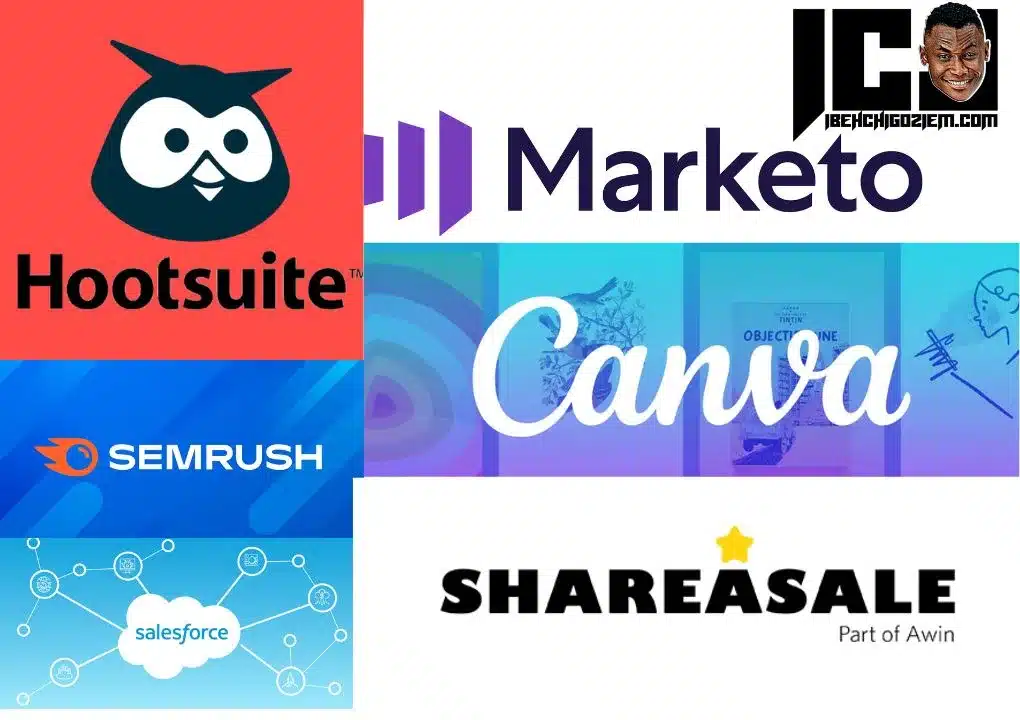Top 10 Best Digital Marketing Software 2024/2025
Digital marketing is essential in today’s business landscape due to the wider size of the world market which can only be accessed through the use of digital marketing, which is the only way by which your product can reach the desired buyer irrespective of race, sex, age and most importantly location.
Businesses have noticed that over half of the world’s population uses the internet. Hence, the majority of companies and organizations use digital marketing and have a website to connect with potential clients or customers. To advertise products and services to a target demographic. Digital marketers utilize ee their products and services in a way that will effectively reach their desired audience.
What is Marketing?
Marketing is the process of promoting, selling, and distributing a product or service to consumers. It encompasses a wide range of activities aimed at understanding customer needs, creating value, and building strong customer relationships.
At its core, marketing is about understanding customer needs and desires, creating value, and establishing strong relationships between businesses and their target audiences. It plays a crucial role in the success of any organization, as it directly influences consumer behaviour and drives sales.
The marketing process begins with market research, which involves gathering and analyzing data about consumers, competitors, and market trends.
ALSO, READ Top 10 Best Character AI (Pros and Cons) 2024
Hence, understanding the demographics, preferences, and behaviours of these consumers is essential for developing effective marketing strategies.
These strategies are as follows:
1) Product development
Once a target audience is identified, businesses engage in product development. This involves designing and creating products or services that meet the needs and preferences of the target market.
2) Branding
Branding is another critical aspect of marketing. It involves creating a unique identity and image for a product or service that differentiates it from competitors. A strong brand can evoke emotions, build trust, and foster loyalty among consumers. Elements of branding include the brand name, logo, messaging, and overall visual identity of a product.
3) Promotion
This is the communication aspect of marketing, where businesses convey the benefits and features of their products or services to potential customers. This can be achieved through various channels, including advertising, public relations, social media, and content marketing.
4) Sales strategy
The next in line is the sales strategy. This involves developing approaches to sell products or services effectively. It includes determining pricing, distribution channels, and sales tactics. A well-defined sales strategy ensures that products are accessible to consumers and that sales teams are equipped to engage with potential customers effectively.
What is Digital Marketing?
Digital marketing is often defined as online marketing initiatives that appear on a computer, phone, tablet, or other device. It can take various forms, such as online video, display ads, search engine marketing, paid social ads, and social media posts.
What is Digital Marketing Software?
Digital marketing software refers to a variety of tools and platforms designed to help businesses plan, execute, and analyze their digital marketing efforts. These tools can streamline processes, enhance productivity, and provide valuable insights into marketing performance.
There are 10 key categories of digital marketing software, we will take you through the basic categories as well as detail on the best digital marketing software among those under each category.
ALSO, READ The Effect Of AI in Our Society In The Future
Here are the basic key categories of digital marketing software:
1. Content Management Systems (CMS)
Content Management Systems (CMS) are vital tools in the digital marketing ecosystem, enabling businesses to create, manage, and optimize their digital content efficiently. A CMS allows users, even without extensive technical skills, to build and update websites, publish content, and manage multimedia files with ease.
CMS platforms often integrate seamlessly with other marketing tools, such as email marketing software, analytics platforms, and social media management systems.
CMS encompasses platforms like WordPress and HubSpot that allow users to create, manage, and publish digital content easily.
2. Email Marketing Software
Email marketing software helps businesses maintain consistent communication with their audience while offering a high return on investment (ROI). Personalized emails that cater to individual customer preferences can lead to improved engagement, higher conversion rates, and stronger customer loyalty.
Some of the top email marketing software platforms include Mailchimp, Constant Contact, Sendinblue, and HubSpot.
These platforms cater to businesses of all sizes, from startups to large enterprises, offering a variety of pricing plans and advanced features like CRM integration, transactional email services, and AI-driven personalization.
3. Social Media Management Tools
Social media management tools are essential for businesses looking to enhance their online presence and engage with their audience effectively.
These tools streamline the process of managing multiple social media accounts, allowing marketers to schedule posts, track engagement, and analyze performance from a single platform.
Softwares like Hootsuite, Buffer, and Sprout Social are great marketing softwares that help manage social media accounts, schedule posts, and analyze engagement metrics.
4. Search Engine Optimization (SEO) Tools
Search Engine Optimization (SEO) tools are essential for businesses aiming to enhance their online visibility and improve organic search rankings. These tools provide valuable insights and data that help marketers and website owners optimize their content, track performance, and stay competitive in the digital landscape.
At the core of SEO tools are features that enable keyword research, allowing users to identify relevant terms and phrases that potential customers are searching for.
Popular software like SEMrush, Ahrefs, and Moz assist in keyword research, site audits, and tracking search engine rankings.
5. Analytics and Reporting Tools
Google Analytics and Adobe Analytics provide insights into website traffic, user behavior, and campaign performance.
Analytics and Reporting Tools are essential in the digital marketing landscape, enabling businesses to measure, analyze, and optimize their online performance. These tools provide valuable insights into user behaviour, campaign effectiveness, and overall marketing ROI.
6. Customer Relationship Management (CRM) Software
Customer Relationship Management (CRM) software is a crucial component of digital marketing, enabling businesses to manage interactions with current and potential customers effectively.
By centralizing customer data, CRM systems help organizations streamline communication, enhance customer experiences, and drive sales growth.
At its core, CRM software provides a comprehensive database that stores customer information, including contact details, purchase history, and interaction records.
Software like Salesforce and HubSpot CRM help manage customer interactions, track leads, and analyze sales data.
7. Pay-Per-Click (PPC) Advertising Tools
These tools are essential for businesses looking to enhance their online visibility and drive targeted traffic. These tools allow marketers to create, manage, and optimize their paid ad campaigns across various platforms, including Google Ads and social media networks.
Budget management is another crucial aspect, as PPC tools help in setting daily or monthly spending limits while optimizing bids for maximum visibility.
Softwares that fall into this category are tools such as Google Ads and Bing Ads that enable businesses to create and manage paid advertising campaigns.
8. Marketing Automation Software
Marketing automation software is designed to streamline and optimize marketing tasks, enabling businesses to enhance efficiency and effectiveness.
Popular platforms in this space include HubSpot, Marketo, and Pardot, each offering unique functionalities to cater to different business needs. As marketing landscapes evolve, automation software continues to adapt, incorporating AI and machine learning to provide even more sophisticated insights and automated solutions.
9. Graphic Design Tools
Graphic design tools play a crucial role in digital marketing by enabling brands to create visually appealing content that captures the audience’s attention. These tools cater to various design needs, from social media graphics to website layouts and marketing materials.
One of the most popular graphic design software options is Adobe Creative Cloud, which includes industry-standard applications like Photoshop, Illustrator, and InDesign. These tools offer advanced features for image editing, vector graphics, and desktop publishing, making them ideal for professional designers and marketers alike.
Software like Canva and Adobe Creative Cloud that assist in creating visual content for marketing materials falls into this category.
10. Affiliate Marketing Platforms
Affiliate marketing platforms are vital for businesses looking to expand their reach and drive sales through partnerships with affiliates.
Merchants can easily manage their affiliate relationships, while affiliates benefit from a comprehensive selection of products to promote. ShareASale also provides robust tracking capabilities, ensuring transparency and accuracy in performance reporting.
Under this category, we have tools such as ShareASale and CJ Affiliate that help businesses manage affiliate marketing programs.
Top 10 Best Digital Marketing Software.
As earlier said, each category of digital marketing softwares has more than one softwares, we are going to take you through the best from each category.
1) WordPress
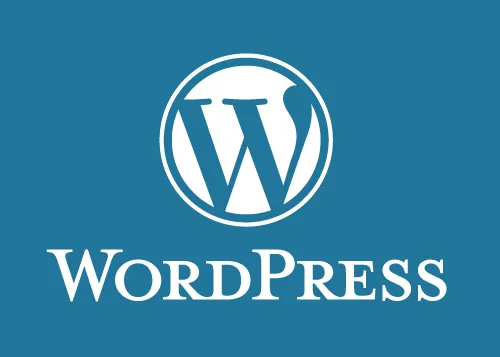
WordPress is one of the most popular Content Management Systems (CMS) in the world, widely used by businesses to power their digital marketing strategies. Originally designed as a blogging platform, WordPress has evolved into a flexible, open-source platform that now supports a vast array of marketing tools, plugins, and themes, enabling businesses of all sizes to create and manage their online presence effectively.
Key Features of WordPress Digital Marketing Software
1) Customizable Design and Themes
WordPress offers thousands of free and premium themes that allow marketers to create visually appealing and professional websites. The flexibility of the platform also enables marketers to tailor the design to align with their brand’s identity and goals.
2) SEO Optimization
WordPress is well-known for being SEO-friendly. With plugins like Yoast SEO and All in One SEO, marketers can optimize their websites for search engines by improving metadata, keyword usage, and site structure. These features help improve organic search rankings, making WordPress an effective tool for driving traffic.
The Impact of WordPress on Digital Marketing
WordPress has revolutionized digital marketing by providing businesses with an accessible, flexible, and powerful platform for creating and managing their online presence. As a content management system (CMS), WordPress has made it easier for businesses of all sizes to build websites and publish content without needing extensive technical expertise.
1. Content Creation and SEO Optimization
WordPress enables businesses to produce, manage, and distribute content seamlessly, which is essential for content marketing strategies. Its built-in features and SEO-friendly plugins, like Yoast SEO, help marketers optimize content for search engines, improving visibility and driving organic traffic.
2. Customization and Scalability
With thousands of plugins and themes, WordPress allows marketers to customize their websites to fit specific needs and objectives. This flexibility is key for digital marketing, as businesses can add e-commerce capabilities, integrate social media, or implement analytics tools to enhance their marketing efforts.
2) Mailchimp
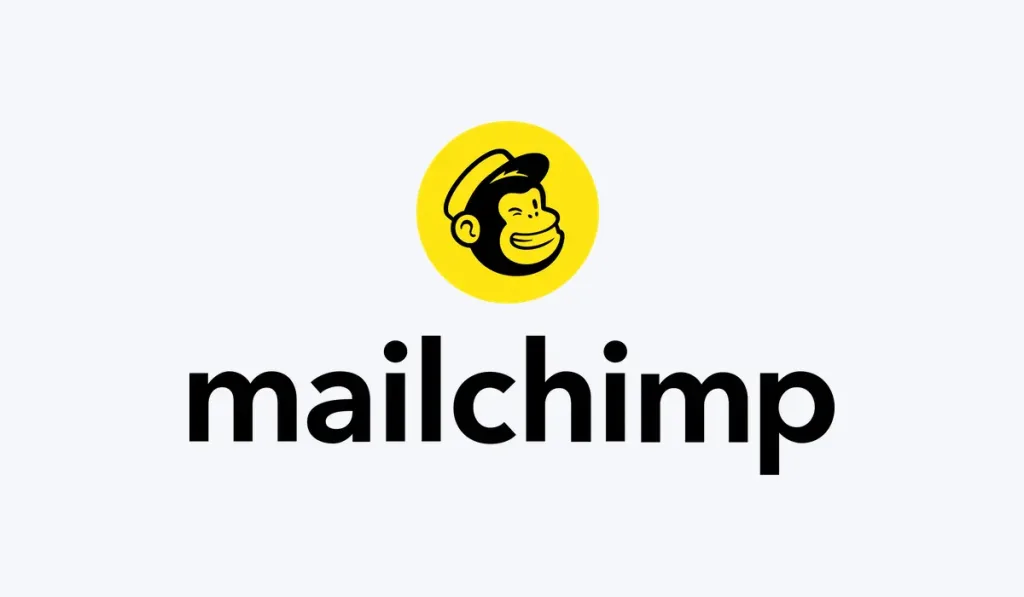
Mailchimp is a powerful digital marketing platform primarily known for its email marketing capabilities, though it has expanded into a comprehensive marketing solution. It is designed to help businesses of all sizes create, automate, and manage email campaigns, while also providing tools for website building, customer relationship management (CRM), and audience engagement.
Key Features of Mailchimp
1) Email Marketing Automation.
Mailchimp’s core offering revolves around creating and sending personalized, targeted email campaigns.
Its drag-and-drop email builder and pre-designed templates make it easy to create professional emails without coding.
2) Audience Segmentation and Personalization:
With Mailchimp, marketers can segment their audience based on various factors like purchase history, demographics, and email engagement.
The Impact of Mailchimp on Digital Marketing
Mailchimp has significantly transformed digital marketing by making professional email marketing and automation accessible to businesses of all sizes. Its intuitive interface and robust features enable marketers to create, manage, and optimize campaigns with ease, even without technical expertise.
1. Empowering Small Businesses
Mailchimp’s affordability and free tier have lowered the barrier to entry for small and medium-sized businesses (SMBs), allowing them to execute sophisticated email marketing campaigns.
2. Automation and Personalization
Mailchimp’s automation tools allow businesses to set up personalized, triggered emails based on user actions, such as welcome emails or abandoned cart reminders.
3) Hootsuite
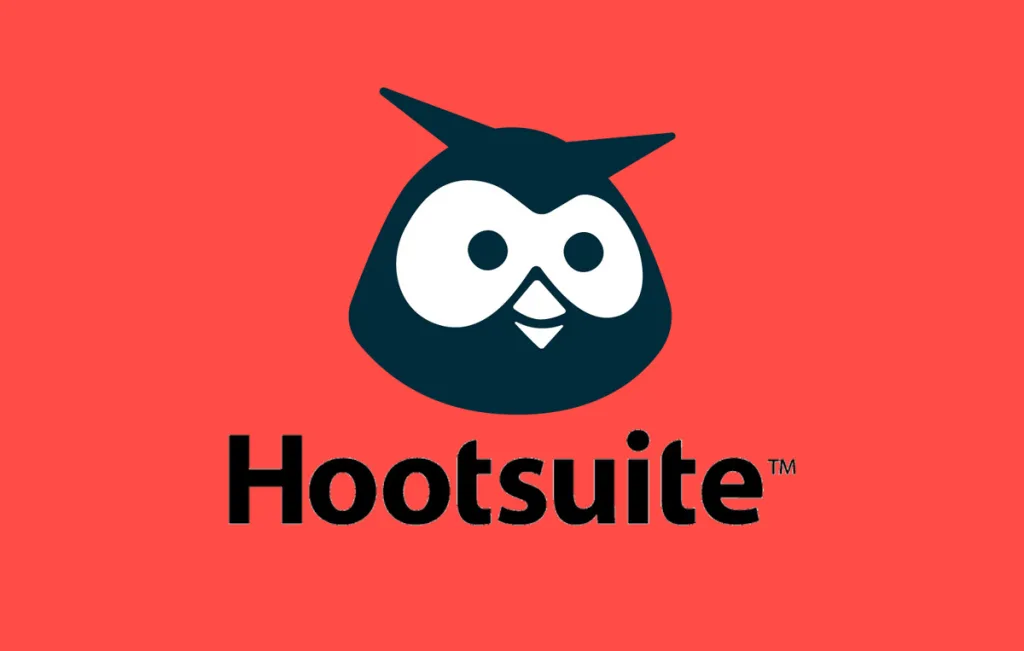
Hootsuite is a widely used digital marketing software that enables businesses to manage their social media presence across multiple platforms.
Designed to streamline social media marketing efforts, Hootsuite helps businesses schedule posts, monitor conversations, and analyze performance from a single dashboard. It supports various platforms, including Facebook, Instagram, Twitter, LinkedIn, and YouTube.
Key Features
1) Social Media Scheduling
Hootsuite allows marketers to schedule posts in advance across different social platforms, ensuring consistent content delivery. This feature helps businesses maintain a steady online presence without needing to post manually.
2) Monitoring and Engagement
Hootsuite’s dashboard provides real-time monitoring of social media activity, enabling marketers to track brand mentions, hashtags, and direct messages. This helps businesses engage with their audience promptly and manage customer relationships effectively.
The Impact of Hootsuite on Digital Marketing
Hootsuite has had a significant impact on digital marketing by revolutionizing how businesses manage their social media presence. Its multi-platform scheduling and monitoring capabilities have streamlined social media marketing efforts, making it easier for marketers to manage multiple accounts and ensure consistent brand messaging across various channels.
1. Efficient Social Media Management
Hootsuite’s scheduling feature has allowed businesses to plan and automate their social media posts, ensuring they maintain a consistent online presence without requiring manual updates. This efficiency saves time and enables marketers to focus on creating high-quality content and engaging with their audience.
2. Enhanced Engagement and Customer Relations
With Hootsuite’s real-time monitoring tools, marketers can track brand mentions, hashtags, and direct messages, enabling quicker responses to customer inquiries and feedback. This immediacy has improved customer engagement and allowed businesses to manage their reputation more effectively.
3. Data-Driven Social Media Strategies
Hootsuite’s robust analytics tools provide insights into social media performance, allowing businesses to measure engagement, track follower growth, and evaluate campaign success.
4) SEMrush

SEMrush is a leading digital marketing software designed to help businesses optimize their online presence through data-driven insights. It offers a wide range of tools for search engine optimization (SEO), content marketing, social media management, and competitive analysis, making it a go-to solution for marketers aiming to improve visibility and drive traffic.
Key Features of SEMrush
1) SEO Tools
SEMrush provides in-depth tools for keyword research, on-page SEO optimization, backlink analysis, and technical SEO audits. These features allow marketers to identify high-performing keywords, analyze competitors, and optimize their websites to rank higher in search engine results.
2) Competitor Analysis
SEMrush’s competitive analysis tools enable users to track the online performance of competitors. Marketers can analyze competitor keywords, ads, backlinks, and traffic sources, helping them identify opportunities to outperform rivals in search rankings and paid campaigns.
3) Content Marketing Tools
SEMrush helps users plan and optimize content strategies with tools for topic research, content auditing, and performance tracking. These insights ensure content is aligned with user intent and SEO best practices, improving organic reach.
The Impact of SEMrush on Digital Marketing
SEMrush has had a profound impact on digital marketing by offering a comprehensive set of tools that enable businesses to improve their online visibility, optimize their marketing strategies, and drive growth. As one of the most popular all-in-one platforms for SEO, content marketing, etc., SEMrush provides valuable insights that shape effective marketing campaigns.
1. SEO Optimization
SEMrush has transformed how businesses approach search engine optimization (SEO). Its powerful keyword research tools allow marketers to identify the most relevant and high-performing keywords for their industry. The platform also offers site auditing, backlink analysis, and on-page SEO optimization, helping marketers address technical issues and improve search rankings.
2. Data-Driven Decision Making
SEMrush’s competitive analysis tools enable businesses to monitor their competitors’ SEO and paid search campaigns, providing insights into their keywords, content strategies, and backlink profiles. This data-driven approach allows businesses to refine their own marketing strategies by capitalizing on competitors’ weaknesses and identifying new growth opportunities.
5) Google Analytics
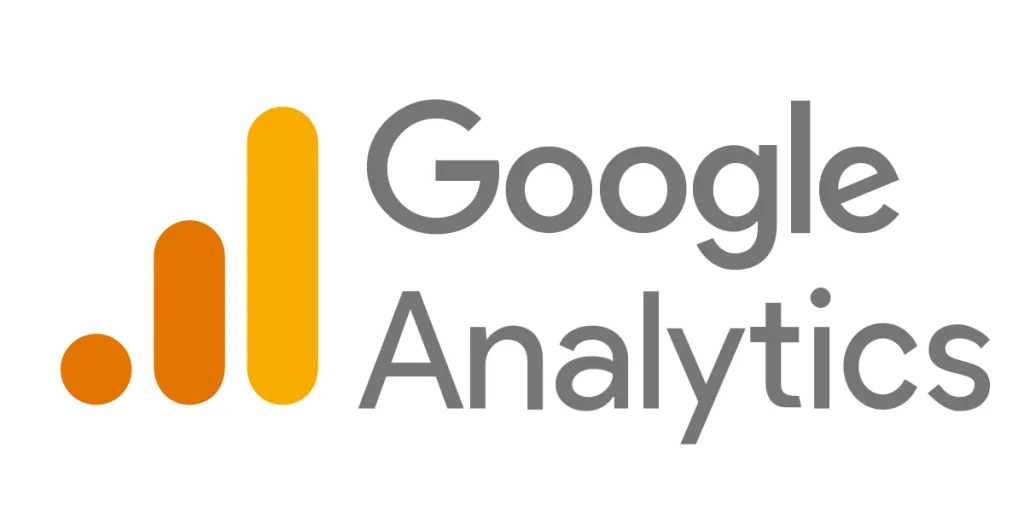
Google Analytics is a leading digital marketing software that provides businesses with essential insights into website traffic and user behavior. This free tool is crucial for marketers seeking to optimize their online presence, enhance user experience, and drive conversions.
Key Features
1) Comprehensive Data Tracking
Google Analytics tracks a wide range of metrics, including page views, user sessions, bounce rates, and average session duration. This data helps marketers understand how users interact with their websites, identifying popular content and potential areas for improvement.
2) Audience Insights
The platform offers detailed demographic information about website visitors, such as age, gender, location, and interests. This information allows marketers to tailor their strategies and create more targeted content that resonates with specific audience segments.
3) Traffic Sources Analysis
Google Analytics helps businesses understand where their traffic is coming from, including organic search, paid ads, social media, and referrals. This insight enables marketers to allocate resources effectively, optimizing their marketing channels for better performance.
4) Goal Tracking and Conversion Analysis
Marketers can set up specific goals within Google Analytics to measure conversions, such as form submissions, product purchases, or newsletter sign-ups. This feature allows businesses to track their performance against key objectives, identifying successful strategies and areas that need improvement.
The Impact of Google Analytics on Digital Marketing
Google Analytics has fundamentally transformed digital marketing by providing businesses with powerful insights into user behaviour and website performance. As a robust analytics tool, it enables marketers to make data-driven decisions, optimize their strategies, and enhance their overall online presence.
1. Informed Decision-Making
One of the most significant impacts of Google Analytics is its ability to provide comprehensive data that informs marketing strategies. By analyzing metrics such as traffic sources, user demographics, and behaviour flow, marketers can identify what works and what doesn’t. This allows them to refine their campaigns, allocate resources more effectively, and make adjustments that lead to better outcomes.
2. Enhanced Targeting and Personalization
Google Analytics allows businesses to gain insights into their audience, including age, gender, location, and interests. This data enables marketers to create highly targeted campaigns tailored to specific segments. Personalized marketing strategies based on user data can improve engagement rates and conversion, leading to a higher return on investment (ROI).
3. Optimized Content Strategy
By monitoring which pages have the highest traffic and engagement, Google Analytics helps businesses understand what content resonates with their audience. Marketers can leverage this information to create more relevant and valuable content, driving organic traffic and increasing user retention.
6) Salesforce
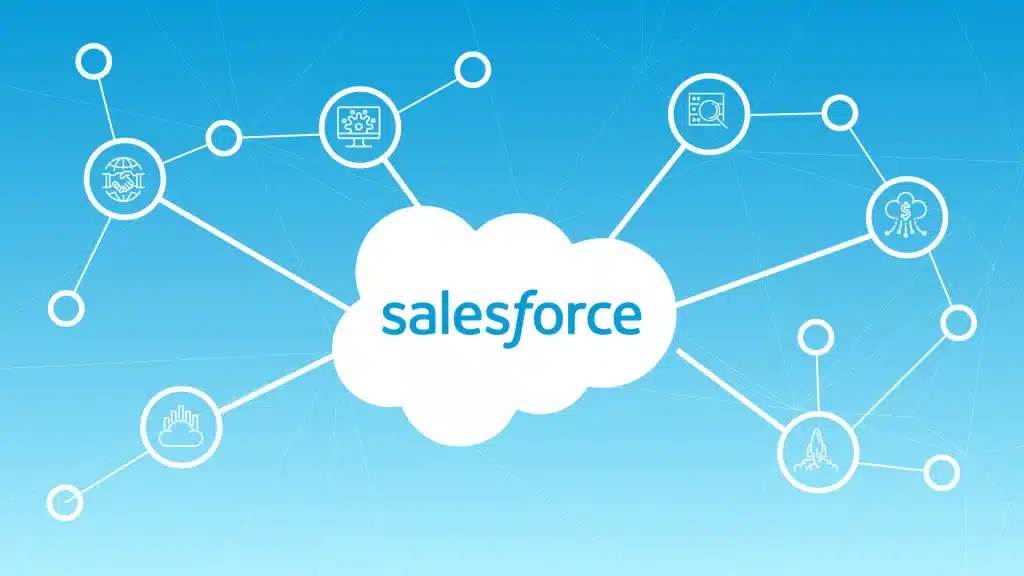
Salesforce is a premier customer relationship management (CRM) platform that offers a comprehensive suite of digital marketing tools designed to help businesses effectively engage with their customers and drive growth.
The Salesforce Marketing Cloud is the central feature that empowers marketers to create personalized, data-driven marketing campaigns across multiple channels.
Key Features
1) Customer Journey Mapping
Salesforce Marketing Cloud allows marketers to visualize and manage customer journeys, enabling them to create tailored experiences based on user interactions. This feature ensures that businesses can deliver the right message at the right time, enhancing customer engagement.
2) Email Marketing
With robust email marketing tools, Salesforce enables users to design, automate, and analyze email campaigns. The platform includes customizable templates and A/B testing options, helping marketers optimize content for higher open and conversion rates.
3) Social Media Management
Salesforce integrates social media capabilities, allowing businesses to manage their social presence, schedule posts, and analyze engagement metrics across platforms like Facebook and Twitter. This integration fosters a consistent brand voice and deeper connections with audiences.
Impact of Salesforce on digital marketing
Salesforce has profoundly impacted digital marketing by enhancing customer personalization and integrating marketing strategies with CRM capabilities.
Its robust data analytics enable businesses to tailor campaigns based on customer behaviour, improving engagement and loyalty.
The seamless flow of information between sales and marketing teams fosters collaboration, leading to more effective lead nurturing.
7) Google Ads

Google Ads is a premier digital marketing platform that allows businesses to create, manage, and optimize online advertising campaigns across Google’s extensive network, including search results, display ads, YouTube, and mobile applications. This pay-per-click (PPC) advertising solution is essential for marketers looking to reach potential customers effectively and drive traffic to their websites.
Key Features of Google Ads
1) Search Advertising
Google Ads enables businesses to display text-based ads in search results based on specific keywords, targeting users actively seeking relevant products or services.
2) Display Advertising
Through the Google Display Network, advertisers can create visually appealing banner ads that appear on millions of websites, enhancing brand visibility and engagement.
3) Video Advertising
Businesses can run video ads on YouTube, reaching a vast audience and leveraging engaging content to capture attention.
The Impact of Google Ads on Digital Marketing
Google Ads has significantly transformed digital marketing by providing businesses with a powerful platform to reach targeted audiences effectively. Its pay-per-click (PPC) model allows companies to gain visibility in search results and on various online platforms, driving high-intent traffic to their websites.
1. Targeted Advertising
Google Ads enables precise targeting based on keywords, demographics, and user behavior, ensuring that advertisements reach the right audience at the right time. This level of targeting increases conversion rates and optimizes marketing budgets.
2. Measurable Results
With robust analytics and reporting tools, Google Ads allows marketers to track campaign performance in real-time. Metrics such as clicks, conversions, and return on investment (ROI) help businesses make data-driven decisions and refine their strategies for better outcomes.
8) Marketo
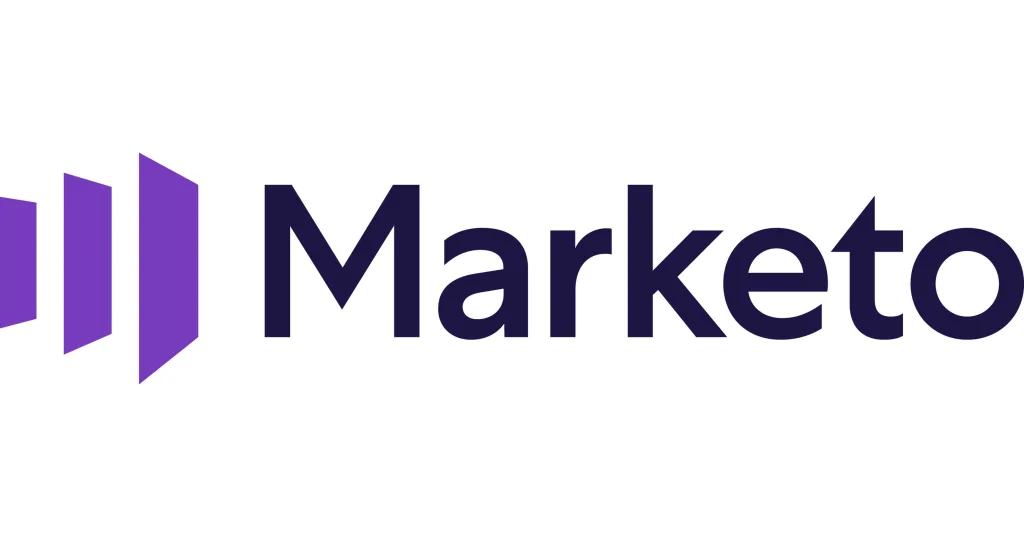
Marketo is a comprehensive digital marketing software platform that helps businesses manage and automate marketing campaigns across multiple channels, including email, social media, web, and mobile.
It offers tools for lead management, customer engagement, analytics, and personalized marketing strategies. Marketo enables businesses to streamline marketing workflows, nurture leads through targeted content, and measure the success of campaigns using detailed performance metrics.
With its integration capabilities and AI-powered tools, Marketo supports B2B and B2C marketers in driving revenue growth, improving customer experiences, and delivering personalized, data-driven marketing strategies that align with business objectives.
Impact of Marketo on Digital Marketing
Marketo has significantly impacted digital marketing by enabling businesses to automate and optimize their marketing efforts.
Its ability to manage multi-channel campaigns, nurture leads, and personalize customer experiences has enhanced marketers’ efficiency and effectiveness.
The platform’s robust lead management and segmentation tools allow for targeted messaging, improving customer engagement and conversion rates.
9) Canva

Canva is a versatile digital marketing software that enables users to create visually appealing content without needing advanced design skills.
Its user-friendly interface and drag-and-drop functionality make it a popular tool among marketers, entrepreneurs, and businesses for designing graphics, social media posts, presentations, and advertisements.
One of Canva’s standout features is its extensive library of customizable templates, ranging from social media posts to infographics, which helps streamline content creation for various platforms like Facebook, Instagram, and LinkedIn.
Canva also offers a range of stock photos, icons, and fonts, ensuring that users can easily craft professional-looking visuals.
The key features of Canva
1) Drag-and-Drop Interface: Easy-to-use design tools allow users to create custom visuals without needing advanced design skills.
2) Extensive Template Library: Thousands of customizable templates for various content types like social media posts, presentations, and infographics.
3) Stock Media: Access to millions of stock photos, illustrations, icons, and fonts.
4) Collaboration Tools: Teams can work on designs together, provide feedback, and manage projects in real-time.
Impact of Canvas on Digital Marketing
Canva has significantly impacted digital marketing by making professional-quality design accessible to everyone.
Its user-friendly platform allows marketers to quickly create visually appealing content for social media, ads, blogs, and email campaigns, without needing advanced design skills.
Canva’s customizable templates and extensive media library streamline content creation, enabling faster turnaround times.
10) ShareAsale

ShareASale is a popular affiliate marketing platform that connects merchants with affiliates to help promote products and services online. It serves as a digital marketing software, enabling businesses to increase their online presence and drive sales through a network of affiliates who earn commissions by promoting products.
The platform supports a wide range of industries, making it versatile for businesses looking to expand their reach.
Key features of ShareASale include:
1) Affiliate Network: Access to a large pool of affiliates ready to promote products through blogs, websites, and social media channels.
2) Tracking and Reporting: Advanced tracking capabilities allow merchants to monitor sales, leads, and clicks in real time. This helps optimize campaigns based on performance data.
3) Merchant and Affiliate Interface: Both merchants and affiliates have access to easy-to-use dashboards where they can manage programs, track performance, and analyze metrics.
4) Affiliate Tools: Affiliates are provided with tools such as banners, links, and creatives to effectively promote products.
Impact of shareAsale on Digital Marketing
ShareASale has had a significant impact on digital marketing by streamlining the affiliate marketing process for businesses and affiliates.
It allows brands to expand their reach by leveraging a vast network of affiliates who promote products in exchange for commissions, driving targeted traffic and increasing sales.
This performance-based model ensures a cost-effective marketing strategy, as businesses only pay for successful conversions. For affiliates, ShareASale provides an opportunity to monetize their content and audience.
By facilitating transparent tracking, reporting, and commission management, the platform enhances collaboration between merchants and affiliates, making it a crucial tool in digital marketing strategies.
Conclusion
How people consume media in the 21st century has caused marketers to put increased, and sometimes exclusive, emphasis on digital platforms for their campaigns. While digital marketing uses many of the same techniques as traditional marketing through print, television, and radio, it also has its own set of tools that marketers need to master to succeed.
